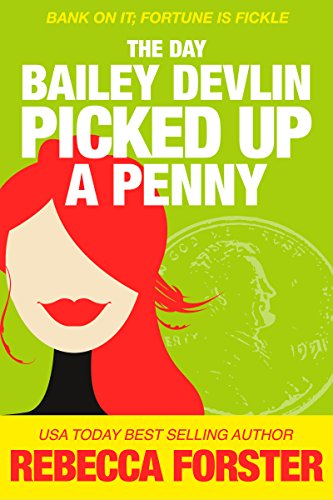News You Need by Kitty Bucholtz
February 9, 2011 by A Slice of Orange in category Archives tagged as It's Worth It
As you’re working through your new goals for this year, you may find some helpful information in the following articles. It’s been one of those months where every other email I open has some great tidbit in it and I wanted to share it all with you. Some of it is news, some are warnings, some have opportunities, and some have ideas for your craft. Hopefully, some of it will help you to have a more successful year! 🙂
I saw a documentary on TV that a friend of mine produced and it was so fascinating that I went online to find more information. Here is a post from 2009 at The Book Deal about how your brain works and whether you can help it become more creative to improve your writing.
I’m excited to find out about John Maxwell’s new 1-minute word-of-the-day videos. John is an excellent motivational speaker and writer. I’ve read several of his books and they have helped me in building the kind of writing business I can be happy with. I get the daily video in my Inbox and each one helps me to focus on a characteristic that could make me a better leader, including leading myself.
There are some writing contests that are gimmicks for bad business. Agent Janet Reid tells you about one to beware of (though I think with all the bad press this last week, the contest’s web site is already down) and she gives you the warning signs for future reference. The Writer Beware blog also has a good post on agent solicitations and how to spot the red flags. And here’s an article from WritersWeekly about a company that buys 5-star book reviews and recruits writers to write them.
Paperback Writer (Lynn Viehl) posted a list on her blog of ten writing opportunities she’s found recently. Cindi Myers also posts writing opportunities every week.
The Romance Writers of America’s Fantasy, Futuristic and Paranormal chapter’s blog is bursting with great articles on the craft – world building and more world building, creating a story bible, secrets of successful authors, point of view, what to do with your blog, and so much more. This is a great blog for picking up lots of useful tips!
At Inkhaven, there’s a re-post of a blog called Lessons from the Slush Pile. The author is an Assistant Editor at a magazine.
I’ve seen a few emails about Jerry Seinfeld’s Don’t Break the Chain calendar. CJ Lyons talks about it here. It’s a fun and simple way to keep working on your writing career every day. Download your own free calendar from The Writer’s Store here.
I’m linking to this 2006 interview with YA and children’s book writer Cornelia Funke because I love her work! As with so many great writers, there are lots of little encouragements and tips to be gleaned by reading the interview.
Finally, living in Australia, I must comment on the Queensland floods. A friend of a friend posted this article about the amazing generosity of strangers and included pictures of her mother’s house and the wonderful people who helped them clean up. The generosity of writers and readers around the world is helping to replace books in libraries, and give books away to people who have lost everything and need a little storytelling escape. The Romance Writers of Australia have organized ways for you to help here.
Kitty Bucholtz is a writer and speaker, and a member of Romance Writers of America and Romance Writers of Australia. She co-founded Routines for Writers (http://www.routinesforwriters.com/) a web site dedicated to helping writers write more. In 2011, Kitty will receive her Master of Arts degree in Creative Writing from University of Technology, Sydney.
0 0 Read moreStarting Fresh by Kitty Bucholtz
January 9, 2011 by A Slice of Orange in category Archives tagged as It's Worth ItMy awesome husband gave me several books for Christmas. Yay! One of them is Becoming a Writer by Dorothea Brande. I can’t remember who turned me on to this book (something I read online in the last six months), but I am so glad. Normally, I wouldn’t be interested in a how-to book on writing that was published in 1934. I have the modern tendency to believe we have better ideas “now†than “then.â€
But this book is great! The chapters on “Harnessing the Unconscious†and “Writing on Schedule†made me feel like an undisciplined child being scolded by an auntie. I started the two exercises in those chapters today. Tomorrow’s reading is the chapter “The Source of Originality.†I’m very excited about this because of my work in my master’s degree. I’ve found that some of my work appears to be exciting and interesting and original, but I’m afraid I won’t be able to expand it enough to make an entire novel of exciting, interesting, original characters and ideas.
That sort of (normal) fear is part of the reason I love mornings, the first of the month, and January: they are all opportunities to start again. Or – to better express what I want to do with my writing – to start fresh.
What do you want to do this year that is new or fresh? What do you want to do that you’ve been wanting to do every year but still haven’t managed yet? Do you have a fresh approach you want to try?
Since this is a time to think about what’s working and what’s not working, I’ve been thinking about myself at other ages. As long as I can remember, I’ve been a “wait till the last minute†person with homework and things that were required of me, like chores. But things that I loved, that seemed more like fun than work, those things I did quickly, easily, eagerly. (I spent countless hours playing my saxophone in high school, usually without being told to go practice by my mother.)
I used to think I waited till the last minute to do homework because I was so smart that I could still get an A without spending more time. Now that I’m older I tend to believe that if I can do a good or great job quickly and easily, how much better can I do if I spend some time at it? But in my past experience, I only spend time on things I think are fun.
So you can see my conundrum if I tell myself that writing is my job and I must do it or go back to accounting. My writing tends to be more sporadic rather than disciplined – if I have to write, I don’t want to, but if I’m having fun, I think I should be doing something more important. This uneven approach yields writing quality that’s good, sometimes very good, but it’s not brilliant as often as I want it to be for a career novelist.
That is why I decided to read this book, Becoming a Writer. I know the technical aspects to writing, and I know the craft. What I don’t seem to know as well as I’d like is – me. What is going on in my unconscious? How can I relax and trust myself and find both self-discipline and self-confidence? I don’t know if Dorothea has the answers, but the chapters I have left to read suggest in their titles that there are some awesome “ah-ha†moments ahead. I’ll let you know what I find out. Or go buy or borrow the book yourself. (It’s got a $12.95 cover price, and is currently $5.95 on Amazon.)
I decided that I wanted to see if there are some things I can learn about myself that will help me in creating goals and plans that work better for me this year than in years past. With my usual optimism, I believe 2011 is going to be the best writing year yet! And I believe that believing it is half the battle. But I need to see if there are better ways to go about the work, ways that work better for me personally, ways to work with my natural self and not against myself. It’s a combination of faith and works together that will see me reach my goals.
If you’re interested in some new ways to plan out your work and your year, check out the online class I’m teaching starting next week – Going the Distance: Goal Setting and Time Management for Writers. We’ll be working through our own personal lists of what we want to get done and what needs to be done, and writing out a schedule of sorts to accomplish it with more peace and less stress. If you think this could help you start your new year off right, sign up now. Class starts Monday.
However you decide to make plans for 2011, make them now. You’ll accomplish more if you get even half of your goals accomplished than if you give yourself no goals at all.

Kitty Bucholtz is a writer and speaker, and a member of Romance Writers of America and Romance Writers of Australia. She co-founded Routines for Writers http://www.routinesforwriters.com/ a web site dedicated to helping writers write more. In 2011, Kitty will receive her Master of Arts degree in Creative Writing from University of Technology, Sydney.
0 0 Read moreGift Ideas for Writers by Kitty Bucholtz
December 10, 2010 by A Slice of Orange in category Archives tagged as It's Worth It
Taking Care of Yourself – Not an Option by Kitty Bucholtz
November 9, 2010 by A Slice of Orange in category Archives tagged as It's Worth It I’ve been a full-time grad school student for the last eight months. It’s been wonderful and exhausting. I’ve loved school since kindergarten and I’ve been looking forward to grad school for nearly a decade. The process of getting accepted and enrolled happened in a whirlwind and I didn’t have any time to plan for it. I started school in March (the autumn semester here in Australia) and hadn’t even finished my U.S. taxes, so I started out behind already in terms of time.
I’ve been a full-time grad school student for the last eight months. It’s been wonderful and exhausting. I’ve loved school since kindergarten and I’ve been looking forward to grad school for nearly a decade. The process of getting accepted and enrolled happened in a whirlwind and I didn’t have any time to plan for it. I started school in March (the autumn semester here in Australia) and hadn’t even finished my U.S. taxes, so I started out behind already in terms of time.
And nothing really changed.
I stayed barely one step ahead of the slashing scythe of time the whole year. With three weeks left to go and three more assignments due – and Australian taxes due by the weekend! – I can tell you some things I’ve learned. I hope they help you prepare for NaNo or your next writing push.
Sleep
Know yourself. Do you need 6-7 hours a night? Then don’t go below 6. I am a happy camper with 8 1/2 hours plus time to lie in bed before I get up. (I like to talk to God about my day and mentally map it out.) So I try not to get less than 7, and I don’t get less than 6 hours two nights in a row. When I know I’m going to have a timing issue with sleep, I try to plan around it. On nights I’m out late for class or a meeting, I try to make sure the next morning is not a running morning. (On running days I get up at least an hour earlier.)
Know how you sleep and what helps you sleep better or worse. I’ve found I don’t sleep well if I’ve eaten in the last couple hours before bed. If I drink too much liquid in the last 4-6 hours of the day, I will often wake up and then rarely sleep well again after the bathroom break. (I now try to drink my many glasses of water from the time I wake up until about 3pm. I’m a big water drinker, but it’s bad for sleeping well.) The stress of school hasn’t helped either. A nutritionist at the local pharmacy suggested some natural herbal sleep aids. They’ve done wonders!
Exercise
I used to hate exercising. I don’t know why. I really don’t know why I’ve come to love running! 🙂 But here is a very real example for you. John and I ran a half marathon in September. We wanted a few days break from our running schedule, so we took it. Company came and we got lazy for another 10 days. Then it seemed to rain every morning that we planned to run. Before we knew it, a month had passed before we went out again. It was no surprise that we did terribly those first few days. What was a surprise was how much better I felt within a day or two after getting back into my regular running routine. I had more mental and physical energy to pour into my work.
If you exercise, keep at it. If you used to, but don’t do it anymore because you don’t have time, get back into it. If you hate the very word, do some floor exercises or at least stretches every day. This will help you stay strong while you spend time at your computer. And remember to stretch every 20-30 minutes. I set my kitchen timer this week and did a different stretch every 20 or so minutes. Each time took about 1 minute or less. Not that much time out of your day! I think you’ll see it has lasting positive effects.
Nutrition
This is my biggest weakness. (Have suggestions? Please share them!) The only thing I know for sure is that if I start the day with eggs or a protein shake, everything is better. I don’t have as many cravings and I find it somewhat easier to skip the sugary foods in my pantry. And I feel like I can concentrate better. But if I start with my favorite jaffa muffin from Brumby’s (an orange and chocolate chip muffin from my favorite bakery), I seem to crave sugars and breads all day.
When I asked the nutritionist about something to help me sleep, I told her about my life and stress and asked if she had any advice. She not only suggested the protein shake in the morning, or sprinkling the protein powder on healthy cereal, but she said I’d be better off keeping some fruits and nuts nearby for snacking. I’ve been eating prunes and dried apricots and almonds and peanuts for snacks lately. Again, big difference. Not only is it better for my body than sugary snacks and cookies, but my snack-craving fades after I’ve eaten a couple handfuls. Then I’m back to focusing on my work again. (One new favorite for breakfast or snacks – Special K with Chocolatey Flakes. Mmm.)
If you’re like me, and you work until you’re starving hungry and then have no self-control until you’ve put something in your stomach to ease the hunger pains – put a bag of your favorite dried fruit or nuts or whatever on your desk. Keep a package there – airtight so you don’t get bugs – and remind yourself to reach for it any time, guilt-free!
Rewards for NOT Doing It
We often talk about rewards as part of your writing routine. But it’s usually ways to reward yourself for your accomplishments. I’ve gotten into the habit lately of rewarding myself for what I’m not doing. If I don’t check email or do anything else in the morning, just sit down and do my work until lunch time, I reward myself with TV during lunch. My big weakness is doing other little things before the big thing that needs to be done in my day. (Lately, homework, but also putting writing first.) Then the big and most important thing doesn’t get completed until late in the day because I started it later than I should have/wanted to. (Or worse, it doesn’t get completed that day.)
When I go on my writer’s retreat this weekend, talking is going to be the biggest problem (and not just for me!). I have to think of something not-unhealthy to reward myself for not talking during our designated writing times. Giving myself cookies as a reward will only undermine my new goal for the summer to lose weight. 🙂 I’m still working on the rewards for changing my “bad†behaviors. Throw out some ideas if you have any. The idea is to sabotage your self-sabotaging behaviors.
One reward I decided on months ago was to do some teaching during the summer. I’ve been so busy with homework that I haven’t been able to do a lot of fun stuff lately. I’m excited to tell you that I’m teaching an online class in January – Going the Distance: Goal Setting and Time Management for the Writer. Look over the outline and sign up. We’ll start 2011 by creating better writing routines together!

Kitty Bucholtz is the co-founder of Routines for Writers, a web site dedicated to helping writers write more. She writes romance novels, light urban fantasy novels for adults and young adults, and magazine articles. She is currently enrolled in the Master of Arts in Creative Writing program at University of Technology, Sydney.
Planning for a Writing Push by Kitty Bucholtz
October 9, 2010 by A Slice of Orange in category Archives tagged as It's Worth It
What must be done before the push?
I’m going on a weekend writing retreat with my writer’s group at the end of the month. One of the first things I do when preparing for an event is check my calendar. Australian taxes are due that weekend so I need to make sure I’ve mailed them before then. If I have any blogs due around that period, I’ll write them earlier and set them to post on the correct day.
In order to focus on getting the most amount of writing done that weekend, we’re planning some very easy meals – bagged salad, baked chicken, apples and nuts for snacks. Because I’m the primary grocery shopper at home, and because John is having a Guy’s Xbox Party while I’m gone, I’ve already started buying things that are on sale (cookies this week! Okay, so it won’t be all nutritious snacks!) that I think we’ll need for our weekend events. The day I get home is a birthday party, so I’ll make sure the card and gift are ready, too. This is all shopping I’ll have to finish at least a day or two before I leave. (And I have to keep up with all my homework, too!)
Also, if there’s time, I’ll try to get some brainstorming done, get my work for the weekend organized, etc. Too often, this ends up being the first thing I do during my writing push because I was doing all those other things to get ready to leave. 🙂
What must be done during the push?
It’s easier to decide how I feel about a weekend or week or NaNo if I know what I’m aiming for. Sometimes, just writing every day is a success. Other times, I want to get a certain number of words written, or get to a certain point in the project. When I make a goal, even a range (for example, aim for 50,000 words during NaNo, choose to be happy if I hit 35,000), it gives me a better idea of whether I think I did well, or whether I need to change how I do things in order to get more done next time.
Let me encourage you to make your goals your own. If you don’t write 50,000 words during NaNo or you don’t write a book in a week (BIAW), it’s only a problem if you think it is. There are plenty of ways to choose your goal – a certain number of words or chapters written, a certain amount of editing, finish a section or the project, write a synopsis, write flat out without stopping to think about your choices (this can be fun), write for a certain number or minutes or hours per day or per week, or anything else you can come up with. Be as risky or as safe as you want.
There are some things that need to be done – avoiding distractions – that are more like “things not to do.” Consider using an email vacation reply if your writing push is short enough like a week or a weekend. You could choose not to look at and/or answer email at all until your writing day is over. You could give yourself a one-hour lunch break every day when you can do anything you want – including email. I think you can see now that I think email is the biggest distraction! 🙂 I bought a downloadable program called Freedom that disables my Internet connection for a user-determined number of minutes. That also keeps me from too much Internet research when I want to be writing.
What might you plan to do after?
Depending on the length of the push – a weekend or a month – you may feel nearly overwhelmed by the catch-up work that comes later. I’ve found that sometimes the number of things I put off in November to hit my 50,000-word target have kept me in catch-up mode into January because Christmas takes away most of my “free” time in December. I haven’t always thought NaNo worth it come January. By then I feel so behind, and I often haven’t written much on the project that I just spent a whole month straight working on – so I’ve lost momentum, too.
But if I can plan some time into my calendar for catch-up work, the strain is less. Consider blocking out some time in the first week back for extra email time, laundry, shopping, extra family time, and to organize what you did during the push so that you lose the least amount of momentum. I’ve heard too many friends say they hate taking a vacation because coming back to work after a week or two is punishing. They are overwhelmed at how behind they are or feel they are. Other friends spend a grueling amount of time at work in the week before to try to offset the pain in coming back. It doesn’t matter how you handle it, but if you think about it before you even leave, you may find there are ways to lessen the burden.
I hope this gives you some food for thought as you prepare for your next writing push. If you’re going to do NaNoWriMo this year, some of these ideas may help you get more accomplished without running yourself ragged. I’m going to use these principles for my 3-day writing retreat in a few weeks, and then again for my 3-month summer break from university starting mid-November. I’ll have to adjust the planning for a very short period and for a very long period.
If you have any planning methods that help you during NaNo or BIAW or any other writing push, share them here. It’s always fun to find new ways to get more writing done!
Note: If you’re interested in more on this topic, I’ll be teaching an online class on goal-setting and time management in January for OCC. Check back for more details in the next couple months!

Kitty Bucholtz is the co-founder of Routines for Writers, a web site dedicated to helping writers write more. She writes romance novels, light urban fantasy novels for adults and young adults, and magazine articles. She is currently enrolled in the Master of Arts in Creative Writing program at University of Technology, Sydney.
Affiliate Links
A Slice of Orange is an affiliate with some of the booksellers listed on this website, including Barnes & Nobel, Books A Million, iBooks, Kobo, and Smashwords. This means A Slice of Orange may earn a small advertising fee from sales made through the links used on this website. There are reminders of these affiliate links on the pages for individual books.
Search A Slice of Orange
Find a Column
Archives
Featured Books
THE LOST GIRL IN PARIS
'I will never forget what the Nazi did to me. Never'
More info →THE DAY BAILEY DEVLIN PICKED UP A PENNY
Oh, Boy! Oh, Bailey!
Find a penny, pick it up; just don't bank on Lady Luck.
Newsletter
Contributing Authors
Search A Slice of Orange
Find a Column
Archives
Authors in the Bookstore
- A. E. Decker
- A. J. Scudiere
- A.J. Sidransky
- A.M. Roark
- Abby Collette
- Alanna Lucus
- Albert Marrin
- Alice Duncan
- Alina K. Field
- Alison Green Myers
- Andi Lawrencovna
- Andrew C Raiford
- Angela Pryce
- Aviva Vaughn
- Barbara Ankrum
- Bethlehem Writers Group, LLC
- Carol L. Wright
- Celeste Barclay
- Christina Alexandra
- Christopher D. Ochs
- Claire Davon
- Claire Naden
- Courtnee Turner Hoyle
- Courtney Annicchiarico
- D. Lieber
- Daniel V. Meier Jr.
- Debra Dixon
- Debra H. Goldstein
- Debra Holland
- Dee Ann Palmer
- Denise M. Colby
- Diane Benefiel
- Diane Sismour
- Dianna Sinovic
- DT Krippene
- E.B. Dawson
- Emilie Dallaire
- Emily Brightwell
- Emily PW Murphy
- Fae Rowen
- Faith L. Justice
- Frances Amati
- Geralyn Corcillo
- Glynnis Campbell
- Greg Jolley
- H. O. Charles
- Jaclyn Roché
- Jacqueline Diamond
- Janet Lynn and Will Zeilinger
- Jaya Mehta
- Jeannine Atkins
- Jeff Baird
- Jenna Barwin
- Jenne Kern
- Jennifer D. Bokal
- Jennifer Lyon
- Jerome W. McFadden
- Jill Piscitello
- Jina Bacarr
- Jo A. Hiestand
- Jodi Bogert
- Jolina Petersheim
- Jonathan Maberry
- Joy Allyson
- Judy Duarte
- Justin Murphy
- Justine Davis
- Kat Martin
- Kidd Wadsworth
- Kitty Bucholtz
- Kristy Tate
- Larry Deibert
- Larry Hamilton
- Laura Drake
- Laurie Stevens
- Leslie Knowles
- Li-Ying Lundquist
- Linda Carroll-Bradd
- Linda Lappin
- Linda McLaughlin
- Linda O. Johnston
- Lisa Preston
- Lolo Paige
- Loran Holt
- Lynette M. Burrows
- Lyssa Kay Adams
- Madeline Ash
- Margarita Engle
- Marguerite Quantaine
- Marianne H. Donley
- Mary Castillo
- Maureen Klovers
- Megan Haskell
- Melanie Waterbury
- Melisa Rivero
- Melissa Chambers
- Melodie Winawer
- Meriam Wilhelm
- Mikel J. Wilson
- Mindy Neff
- Monica McCabe
- Nancy Brashear
- Neetu Malik
- Nikki Prince
- Once Upon Anthologies
- Paula Gail Benson
- Penny Reid
- Peter J Barbour
- Priscilla Oliveras
- R. H. Kohno
- Rachel Hailey
- Ralph Hieb
- Ramcy Diek
- Ransom Stephens
- Rebecca Forster
- Renae Wrich
- Roxy Matthews
- Ryder Hunte Clancy
- Sally Paradysz
- Sheila Colón-Bagley
- Simone de Muñoz
- Sophie Barnes
- Susan Kaye Quinn
- Susan Lynn Meyer
- Susan Squires
- T. D. Fox
- Tara C. Allred
- Tara Lain
- Tari Lynn Jewett
- Terri Osburn
- Tracy Reed
- Vera Jane Cook
- Vicki Crum
- Writing Something Romantic
Affiliate Links
A Slice of Orange is an affiliate with some of the booksellers listed on this website, including Barnes & Nobel, Books A Million, iBooks, Kobo, and Smashwords. This means A Slice of Orange may earn a small advertising fee from sales made through the links used on this website. There are reminders of these affiliate links on the pages for individual books.











































